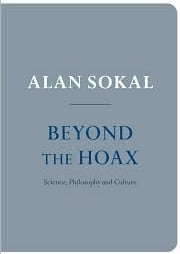OUP, £20.00, ISBN 978-0-19-923920-7

A decade ago, Alan Sokal and Jean Bricmont published Intellectual Impostures: Postmodern Philosophers’ Abuse of Science, a book written to provide a context for Sokal’s glorious hoax, whereby he successfully submitted a parody of postmodern theorizing about science to the journal, Social Text. The journal’s editors snapped up what they took to be a valuable scoop: a professional physicist had defected, conceding that cognitive relativists and social constructivists were astute in their criticisms of the failures of scientific rationality.
Their jubilation was short-lived; Sokal came clean and confessed that the whole thing was a string of nonsense from start to finish, designed to highlight the silliest possible statements and “arguments” that had ever slipped from the word processors of Jacques Lacan, Julia Kristeva, Luce Irigaray, Bruno Latour, Jean Baudrillard, Gilles Deleuze, Felix Guattari, Paul Virilio and their awe-stuck admirers. The academic row that followed burst onto the pages of Le Monde, The New York Times and other newspapers and journals worldwide. Unravelling the issues was the job of that book, but the work is apparently not yet done.
This new book enables the uninitiated to catch up with what they missed, but those who already support Sokal in his defence of science might need some persuading to buy it. The original parody was reprinted in Intellectual Impostures, and now appears yet again, but this time with extensive annotations that match the length of the parody itself. Having new annotations facing the pages of an article that already carries footnotes may seem unappetizing, and the zig-zag reading can be a slow process, but the work is somewhat enlivened by Sokal’s humour and the fact that most of the targeted claims and doctrines are just hilariously inane. In the preface, Sokal faces down the issue of repetitiveness, even though, as he admits, only three of the ten chapters have not been published elsewhere, arguing that this collection makes a coherent whole. It is a useful collection, and, moreover, many chapters are updated versions of previous texts.
The chapter, Defense of a Modest Scientific Realism, is a welcome summary of his position, a response to the Science Studies tribe, who say things like: “The natural world has a small or non-existent role in the construction of scientific knowledge.” Of particular interest to skeptics, however, will be the lengthy chapter, Pseudoscience and postmodernism: Antagonists or fellow-travellers?
Here Sokal illustrates how some zealots of pseudoscience deploy postmodernist arguments when their threadbare stocks of evidence are challenged, and how postmodernists may be so keen to disparage science in their own skeptical way that they uncritically invoke the “findings” of various pseudosciences such as homeopathy and astrology as rival forms of knowledge. In making these moves, they may of course be oblivious of the contradictions involved, or even be contemptuous of attempts to expose them. The first part of the chapter pursues these themes in the field of nursing, in the form of Therapeutic Touch and the influential ideas of Martha Rogers, while the second part explores their toxic presence in Hindu nationalism. Sokal concludes by admitting that there is less convergence of postmodernism and pseudoscience than he predicted, but maintains that, “by weakening the perceived intellectual and moral foundation for scientific thought, postmodernism abets pseudoscience and heightens [as Russell put it] the ‘ocean of insanity upon which the little barque of human reason insecurely floats’.”
The chapter ends with Sokal’s defence of his description of the Pope as “the leader of a major pseudoscientific cult”. All in all, this is a valuable and refreshing read.
Paul Taylor



